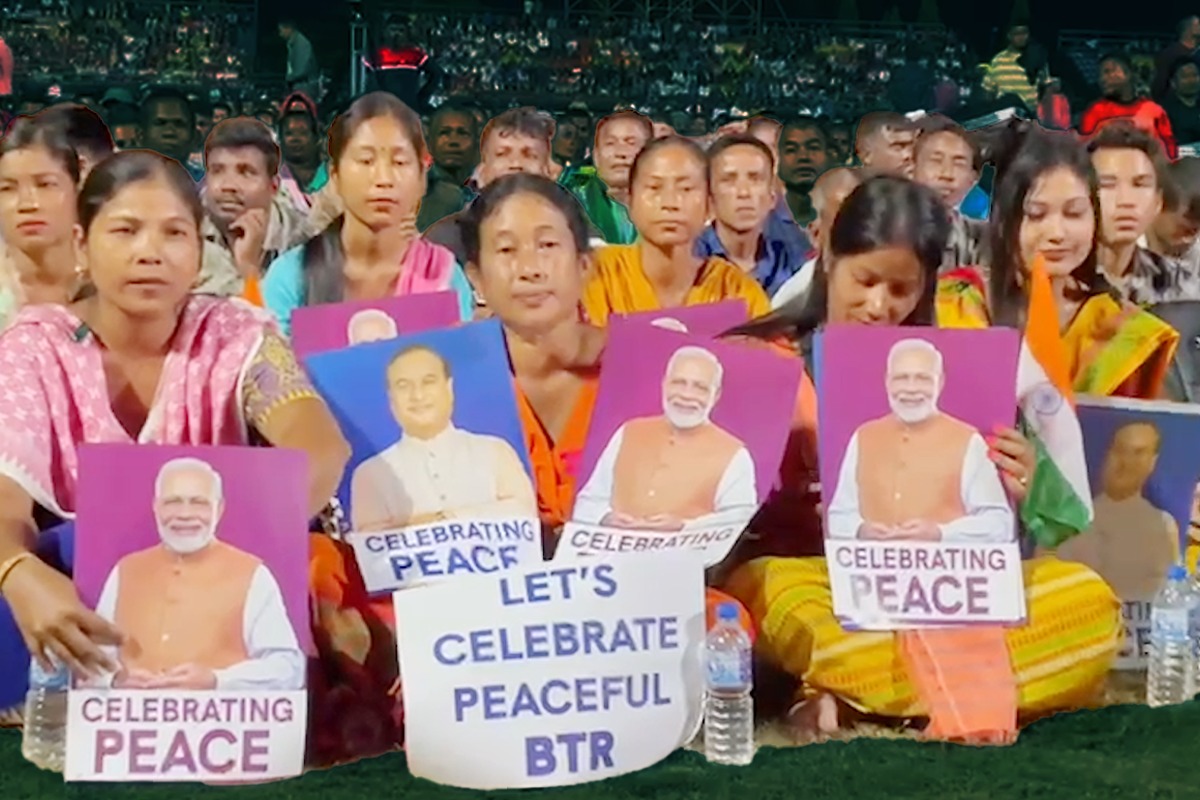


In a significant milestone for the Bodoland Territorial Region (BTR), a region once marred by insurgency, celebrations marked the completion of three years of peace following the successful Bodo Accord. Previously plagued by militancy, the BTR, nestled in Assam, witnessed a transformative moment after the signing of the Tripartite Bodo Accord on January 27, 2020.
The Bodo Accord, signed between the Assam State Government, Central Government, and the National Democratic Front of Bodoland (NDFB), aimed to address separatist demands from the Bodo-Kachari community and usher in lasting peace. The accord gained further prominence with Union Home Minister Amit Shah’s commitment to implementing its clauses within two-and-a-half years, a promise made on March 22, 2021.
Since then, the BTR has witnessed numerous developmental initiatives and projects aimed at rehabilitation. To commemorate the three-year milestone, over 10,000 people gathered at the SAI Stadium in Kokrajhar for a celebratory event. BTR Chief Promod Bodo, in an exclusive conversation with The New Indian, expressed satisfaction, stating that the region had undergone positive transformations.
He remarked, “This is like a dream come true, and everything has changed in three years. Misunderstandings among different communities have been resolved, creating an environment of peace in the region.”
The history of Bodoland is marked by significant turmoil, with conflicts escalating in 2012 between various groups, including the All Bodoland Minority Students Union and former Bodo Liberation Tigers cadres. These clashes, involving Bodos, minority Muslims, and other groups, resulted in a prolonged period of violence, hindering peace and development in the state.
The Bodo Accord of 2020, the third attempt after failed agreements in 1993 and 2003, marked a turning point. Over 1,500 NDFB cadres surrendered in January 2020, depositing a substantial number of weapons.
The accord addressed the demand for a separate state, compensating with the declaration of a territorial council in the north bank. Additionally, a welfare commission was established to address the developmental needs of the Bodo community throughout the state.
Former militants echoed the positive changes, attributing their surrender to the commitment shown by the union government. B Ohnjalu, c (R) General Secretary, highlighted increased opportunities for BTR youths and emphasised the shift towards peace-building efforts.
Sanjay Swargiary, formerly part of NDFB Progressive, now serving as a Member of Council Legislative Assembly, acknowledged the vital role played by the rehabilitation of former cadres in para-military forces.
The peace celebration at Sai Stadium drew thousands of supporters, with locals expressing relief at the newfound tranquillity. The positive sentiments reflected the transformative impact of the Bodo Accord, turning the page on a tumultuous chapter and paving the way for a more secure and prosperous Bodoland.